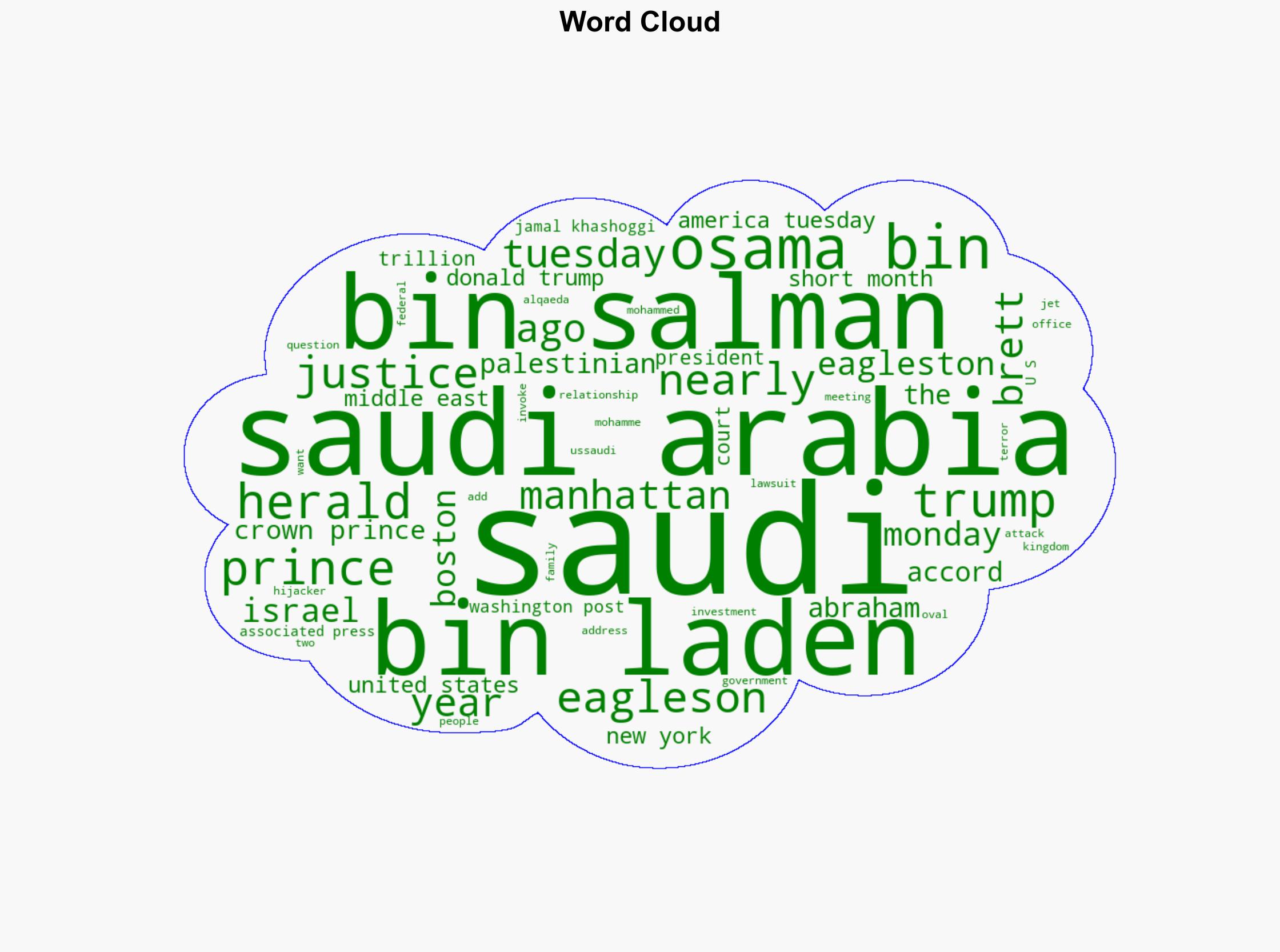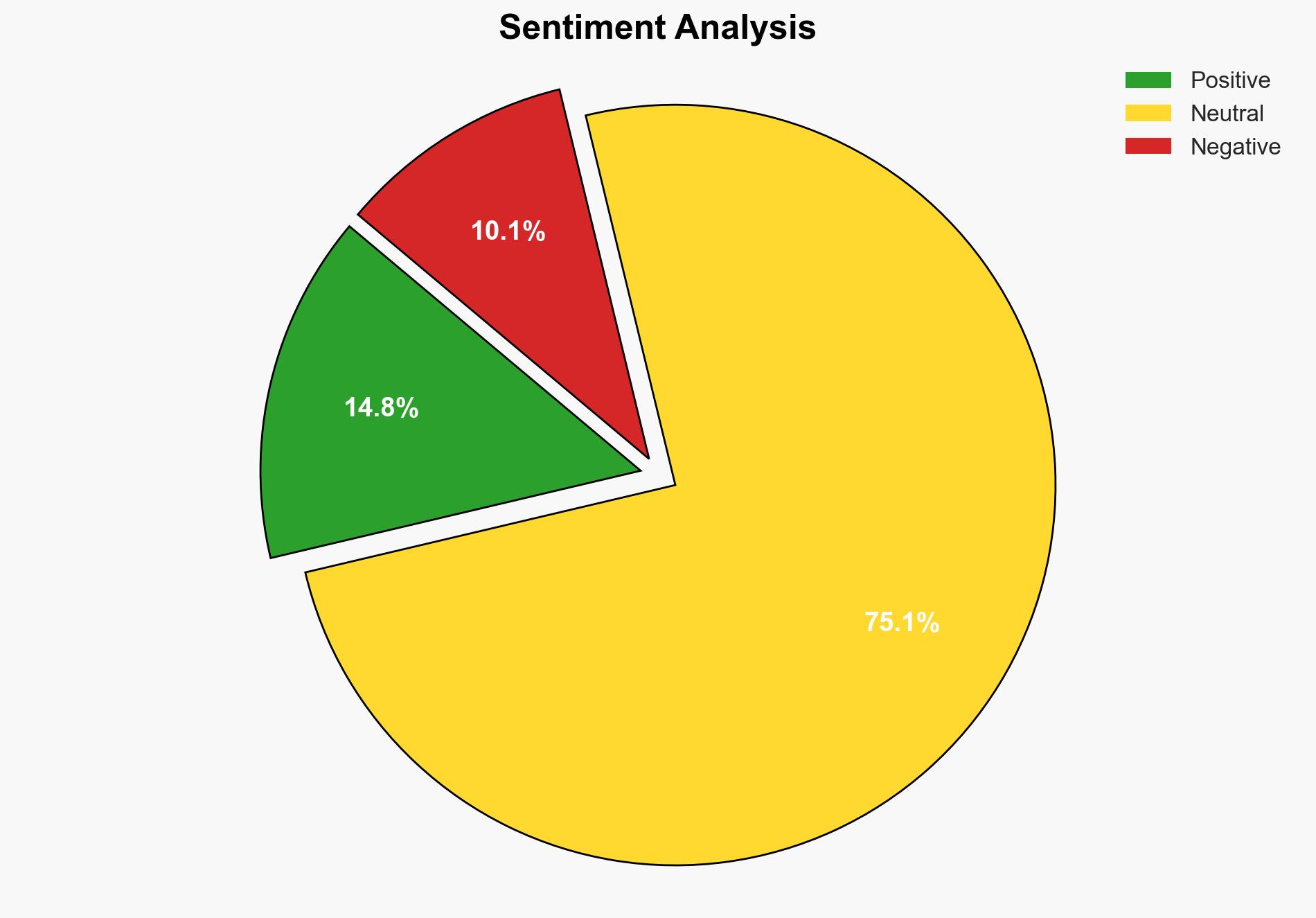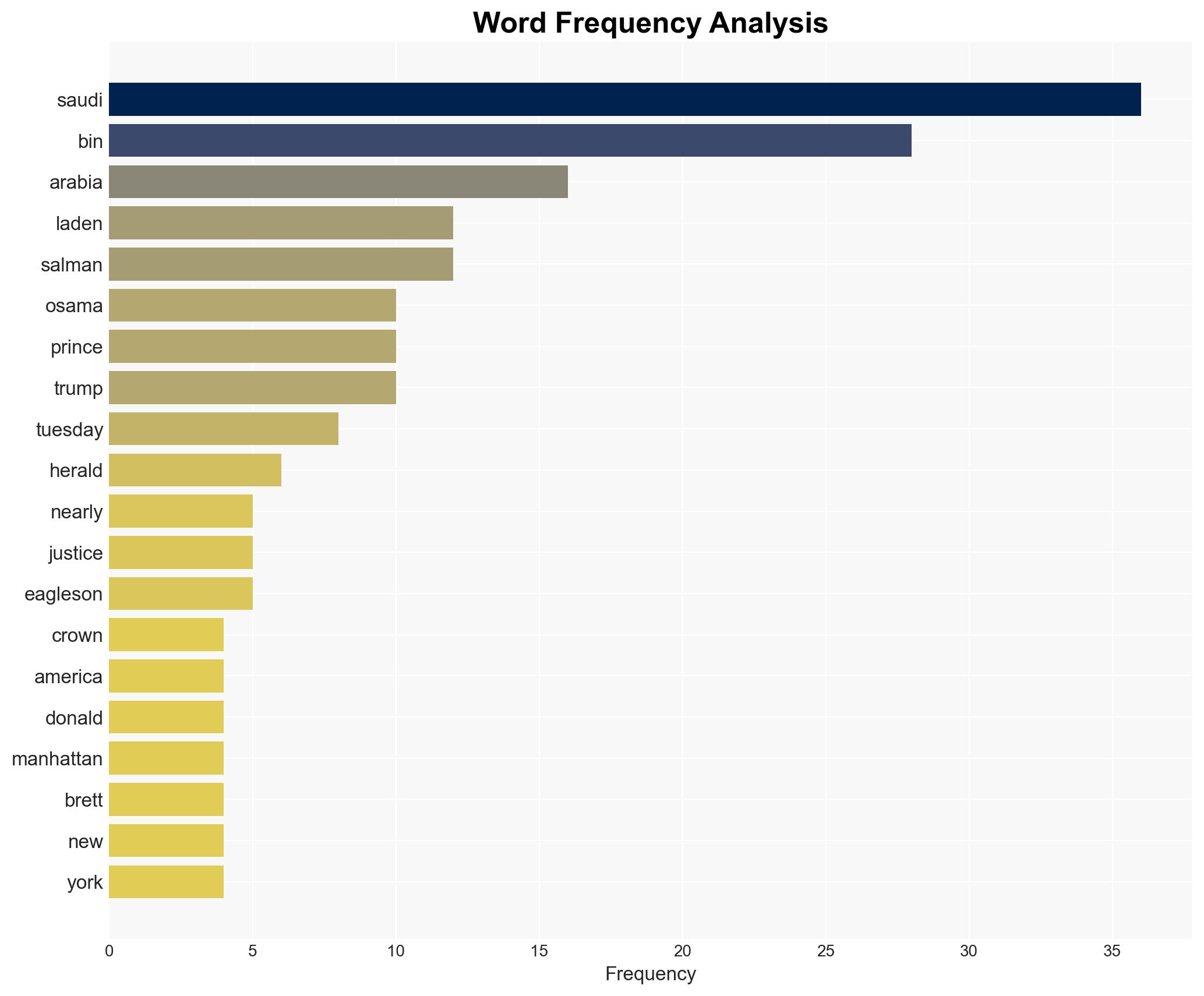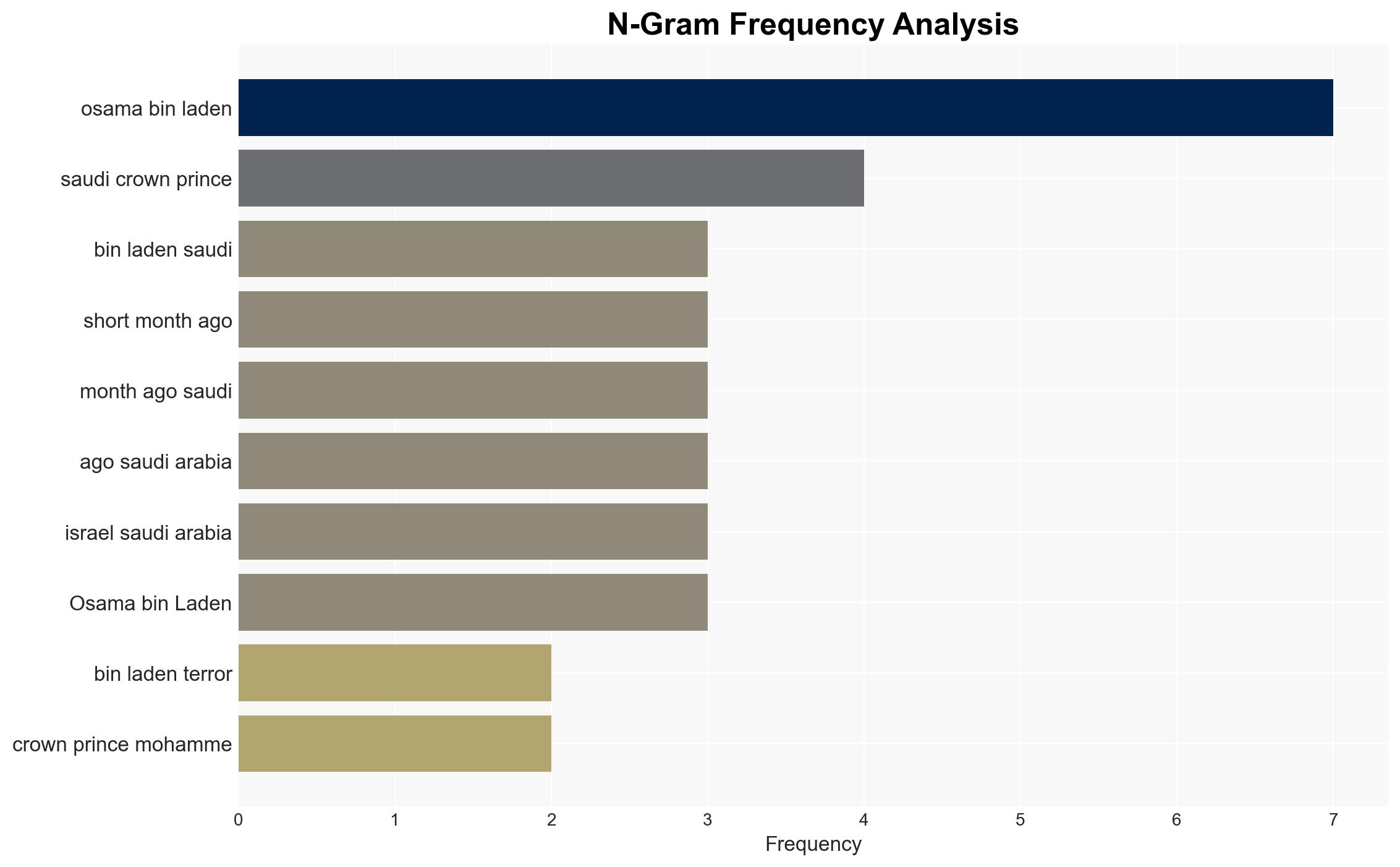911 families push back at Saudi prince over bin Laden blame – Boston Herald
Published on: 2025-11-19
AI-powered OSINT brief from verified open sources. Automated NLP signal extraction with human verification. See our Methodology and Why WorldWideWatchers.
Intelligence Report:
1. BLUF (Bottom Line Up Front)
The strategic judgment is that the U.S.-Saudi relationship is under strain due to ongoing legal and public pressure related to Saudi Arabia’s alleged involvement in the 9/11 attacks. The most supported hypothesis is that Saudi Arabia will continue to face legal challenges and public scrutiny, which could affect diplomatic relations and economic agreements. Confidence level: Moderate. Recommended action: The U.S. should engage in diplomatic dialogue with Saudi Arabia to address these concerns while balancing the strategic importance of the bilateral relationship.
2. Competing Hypotheses
Hypothesis 1: Saudi Arabia will face increasing legal and public pressure due to alleged involvement in the 9/11 attacks, leading to potential diplomatic and economic repercussions.
Hypothesis 2: The U.S.-Saudi relationship will remain stable despite legal challenges, as both nations prioritize strategic and economic interests over past grievances.
Hypothesis 1 is more likely due to the persistent efforts by 9/11 families and the legal system to hold Saudi Arabia accountable, coupled with the public’s sensitivity to terrorism-related issues.
3. Key Assumptions and Red Flags
Assumptions include the belief that legal proceedings will continue to gain traction and that public opinion will influence diplomatic relations. A red flag is the potential for Saudi Arabia to leverage economic incentives to mitigate diplomatic fallout. Deception indicators include any attempts by Saudi Arabia to downplay or dismiss evidence of involvement in the 9/11 attacks.
4. Implications and Strategic Risks
Implications include strained diplomatic relations, potential economic repercussions if legal actions affect bilateral agreements, and increased public scrutiny. Strategic risks involve the possibility of Saudi Arabia retaliating economically or politically if it perceives the U.S. as unsupportive. There is also a risk of escalation in public and diplomatic rhetoric, affecting regional stability.
5. Recommendations and Outlook
- Engage in diplomatic dialogue with Saudi Arabia to address legal concerns while emphasizing the importance of transparency and accountability.
- Monitor public sentiment and legal developments to anticipate potential shifts in diplomatic relations.
- Best-case scenario: Legal issues are resolved diplomatically, strengthening U.S.-Saudi relations.
- Worst-case scenario: Legal actions lead to significant diplomatic and economic fallout, straining bilateral ties.
- Most-likely scenario: Continued legal and public pressure with limited impact on strategic relations, as both nations prioritize mutual interests.
6. Key Individuals and Entities
Mohammed bin Salman, Donald Trump, Brett Eagleson, Jamal Khashoggi
7. Thematic Tags
Regional Focus, Regional Focus: Middle East, U.S.-Saudi Relations, Terrorism, Legal Proceedings
Structured Analytic Techniques Applied
- Causal Layered Analysis (CLA): Analyze events across surface happenings, systems, worldviews, and myths.
- Cross-Impact Simulation: Model ripple effects across neighboring states, conflicts, or economic dependencies.
- Scenario Generation: Explore divergent futures under varying assumptions to identify plausible paths.
Explore more:
Regional Focus Briefs ·
Daily Summary ·
Support us





